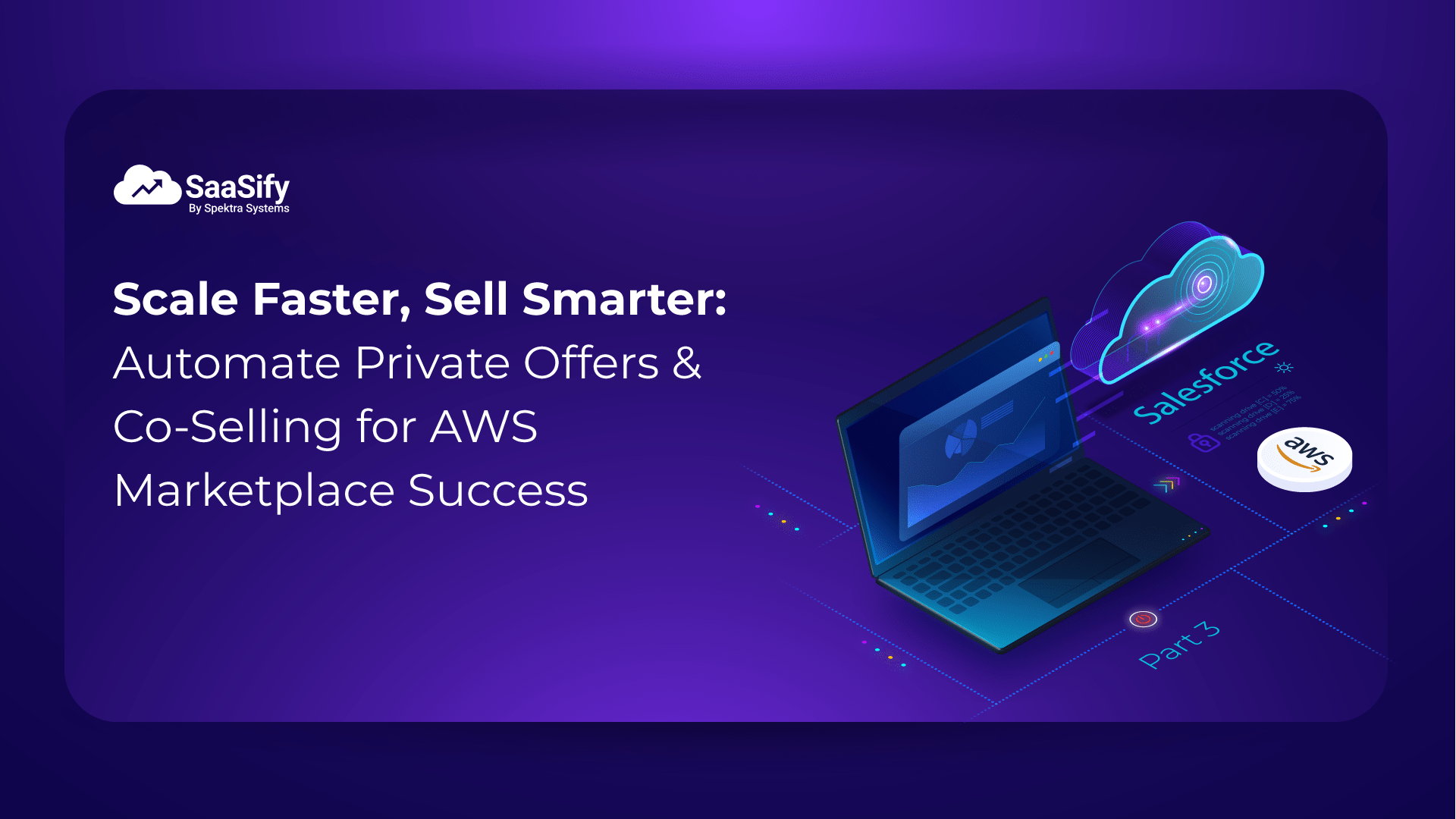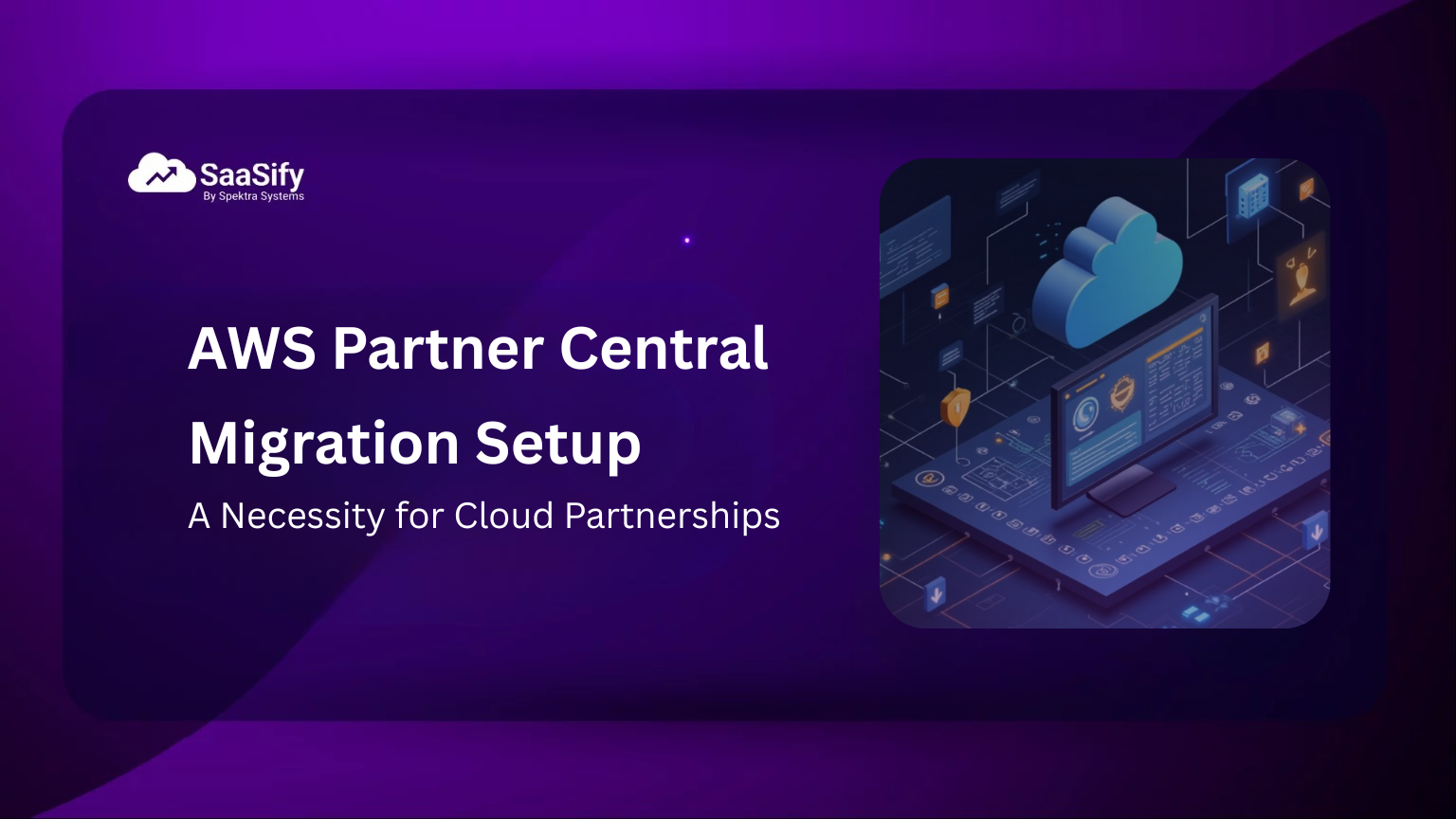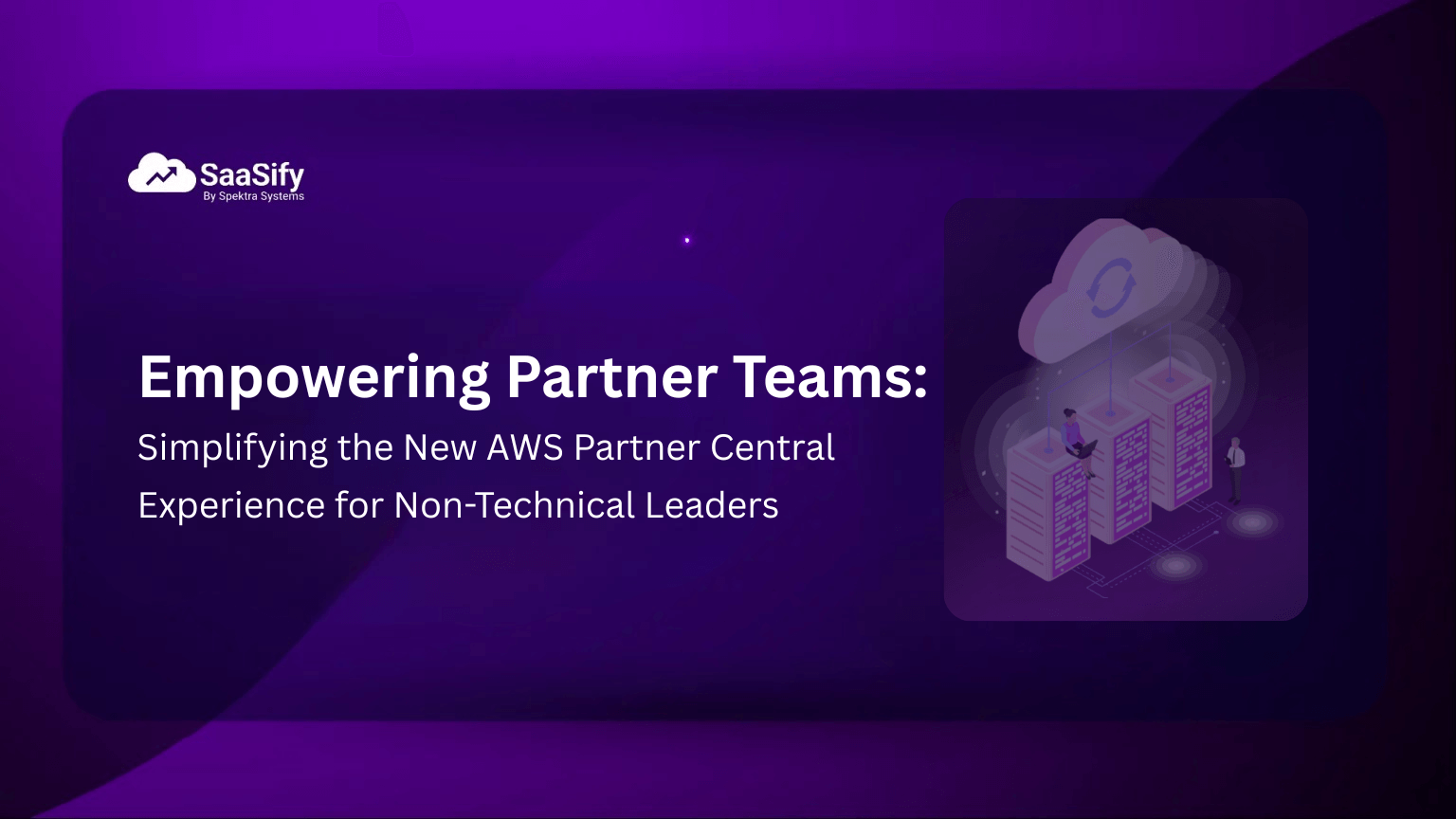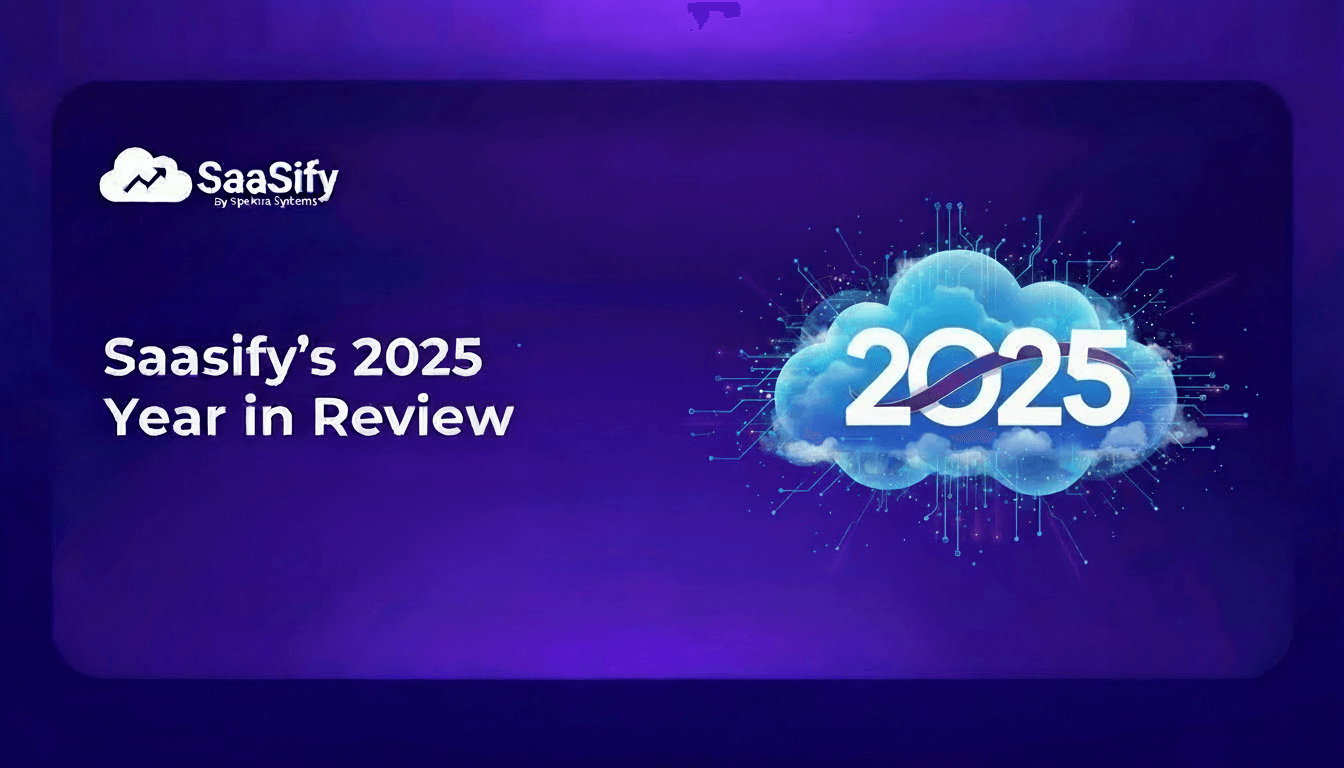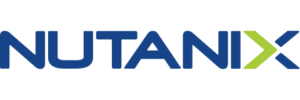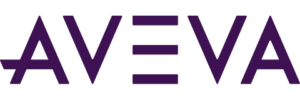Automate Private Offers and Co-Selling via Salesforce on AWS Marketplace: The ISV’s Pathway to Multi-Million Dollar Deals
Undoubtedly, private offers and co-selling in the AWS marketplace hold massive potential for ISVs to unlock multi-million dollar deals. On the one hand, most big enterprise customers demand custom pricing and terms and conditions, over simple, off the rack public offers. On the other hand, co-selling with AWS via ACE program is a unique opportunity to seek incentives, discounts and most importantly, explore joint-selling opportunities, even getting referrals from AWS. However, automation, especially, from a familiar system of record like Salesforce, is integral for ISVs that want to exponentially scale the impact of private offers and co-selling.In the previous two parts of this 3 part series decoding the ISV seller journey and the role of automation via Salesforce, we have discussed how ISVs can easily create private offers (for direct customers and AWS channel partner private offers CPPO) as well as create co-selling opportunities (both inbound and outbound). You can find the same here (Part 1, Part 2).
However, simply creating private offers (direct or CPPO) or an ACE co-selling pipeline is not enough. Managing the offer lifecycle from start to end is extremely important to ensure offer acceptance, billing and invoicing, revenue realization and recurring customers. In this article, we will explore how automation via Salesforce plays an important role in management of private offers and co-selling opportunities, enabling ISVs sellers to reap greater revenue in the AWS marketplace.
Managing private offers and ACE co-selling opportunities: The process
Before understanding how automating private offers and co-selling opportunities impacts ISV sellers, let’s quickly understand what the process entails. Once the seller creates and ships out a private offer or a co-selling opportunity, the ISV teams need to:- Track whether or not the offer has been viewed and accepted by the customer on AWS Marketplace Management Portal (AMMP)
- Monitor the realization of revenue or payment as per the payout terms set forth in the offer/ opportunity
- Closely follow each deal to ensure there is no slippage or delay and take immediate action in case of any anomaly
- Ensure billing and invoicing for timely payments as per payout schedule
- Update status for each deal in the system of record or CRM for record keeping as well as subsequent sales conversations.
- Further identify other Salesforce/ target accounts which are ripe for sales through AWS marketplace to close the loop
Overcoming Operational Hurdles: The Imperative of Workflow Automation between Salesforce and AWS Marketplace
Without workflow automation between your system of record, in this case Salesforce, and AWS marketplace, all these steps need to be performed manually. This means the ISV teams have to manually switch between the platforms to enter information. This opens up the entire process a host of challenges, including:- Context switching between AWS Marketplace Management Portal (AMMP) and Salesforce to get visibility about the deal status
- Significant investment needed for hiring teams to keep track of visibility across platforms
- Constant need to follow up with teams on deal status for next steps
- Potential inaccuracies in data entry and allied challenges
- Inability to identify right customers for selling/ upselling via AWS marketplace
- Multiple hours spent in monitoring deal status across platforms
- Missed opportunities due to delays in deal tracking
- Delayed revenue realization due to context switching needed for billing and invoicing
Enter automation via Salesforce for managing private offers and co-selling opportunities in AWS marketplace
Fortunately, automating workflows for managing private offers and co-selling opportunities from within Salesforce can help ISVs address all the challenges listed above and enable them to unlock multi-million dollar deals without any additional investments. Here’s what automating private offers and co-selling opportunities in AWS marketplace via Salesforce means:Single dashboard with real time deal visibility
With automated workflows, ISVs can easily get visibility of the status of their deals, i.e. whether it is ongoing, any change in status, closed, etc. from within Salesforce. ISVs don’t have to toggle between Salesforce and AWS Marketplace Management Portal (AMMP) to constantly get the latest update. Automation via Salesforce ensures real-time sync and hence, real time visibility into the deal status.One source of truth for all teams, no need for inter-team follow-ups
While some teams might have access to the AWS Marketplace Management Portal (AMMP), almost all teams engaged in a particular deal need visibility into the status. This leads to multiple follow ups between teams on the deal status, especially to initiate the next steps. For instance, finance teams need visibility whether or not a deal has been accepted to start tracking payment receipt, etc. With automation via Salesforce, all teams gain visibility into the deal status in real time. This frees up teams from reliance on one other to receive deal status updates to carry out their operations.Opportunity to identify customers for cloud marketplace selling
With Salesforce automate, ISV sellers can also score their leads and opportunities (existing customers as well as new ones), on their potential to accept deals via AWS marketplace marketplace. Lead scoring and the ability to directly create offers from the same can lead to better co-selling relationships with AWS field sellers.Automated data sync between AWS marketplace and Salesforce
Automation via Salesforce invariably ensures that deal status and particulars are automatically updated against each Salesforce record (object/ leads, etc.). This prevents the time and resources spent in data entry (hiring and time spent in updating data from one platform to the other) on the deal status and other details. Invariably, this resource optimization directly impacts the bottom line. While the expense side shows no increase, the income side does as teams who have greater bandwidth due to elimination of manual data entry can contribute towards more value add tasks.Automated billing with accelerated revenue realization
Salesforce automation ensures that ISV teams can manage all aspects of the billing process, including invoice generation, sending and reminders from within Salesforce’s familiar interface. They no longer have to learn or switch to a new platform, simply to conduct billing.Also, the real-time visibility within Salesforce ensures that any challenge or delay is identified and addressed in real-time, instead of getting attention after a few days. For instance, if any subsequent payments are delayed, finance teams can pick up the matter in real-time and ensure action, instead of following up with teams to check AWS Marketplace Management Portal (AMMP) on the status after a few days from when the payout is due.Increased incidence of customer nurturing for renewals and upselling
Automation via Salesforce also leads to a pleasant customer engagement due to the speed, accuracy and overall experience. At the same time, when deal status update and tracking of customer movement is captured directly in Salesforce, it provides ISV sellers with insights on customer behavior. These insights become the basis of customer conversations and come in handy while nurturing them. Furthermore, real-time visibility into the deal status, expiration date, usage, etc. helps ISV sellers to start nurturing customers for renewals and potential upselling and even facilitate mid-term interventions, if needed.Automating private offers (direct and CPPO) and ACE co-selling opportunities with SaaSify
SaaSify’s Salesforce Application has been enabling multiple ISVs to automate private offers, CPPO and co-selling opportunities across different aspects of the lifecycle. Right from creating private offers and co-selling opportunities, to extending them, tracking the offer status as well as facilitating billing, SaaSify’s automation capabilities ensure that the entire lifecycle can take place from within Salesforce.Our endeavour is simple, to help ISV sellers increase productivity and capture the increasing cloud spends. Research shows that cloud marketplaces are expected to cross the $45 million sales mark by 2025 and automating private offers and co-selling opportunities across the lifecycle via Salesforce, can be a major gamechanger for ISVs.
Book a demo call today with SaaSify experts to understand how automate via Salesforce can impact different stages of the ISV seller lifecycle for private offers for direct customers and CPPO as well as co-selling opportunities with ACE pipeline.




